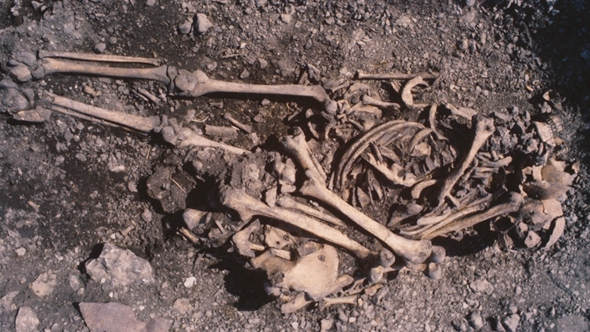How Protein in Your Diet Affects Weight Gain

Get the world’s most fascinating discoveries delivered straight to your inbox.
You are now subscribed
Your newsletter sign-up was successful
Want to add more newsletters?

Delivered Daily
Daily Newsletter
Sign up for the latest discoveries, groundbreaking research and fascinating breakthroughs that impact you and the wider world direct to your inbox.

Once a week
Life's Little Mysteries
Feed your curiosity with an exclusive mystery every week, solved with science and delivered direct to your inbox before it's seen anywhere else.

Once a week
How It Works
Sign up to our free science & technology newsletter for your weekly fix of fascinating articles, quick quizzes, amazing images, and more

Delivered daily
Space.com Newsletter
Breaking space news, the latest updates on rocket launches, skywatching events and more!

Once a month
Watch This Space
Sign up to our monthly entertainment newsletter to keep up with all our coverage of the latest sci-fi and space movies, tv shows, games and books.

Once a week
Night Sky This Week
Discover this week's must-see night sky events, moon phases, and stunning astrophotos. Sign up for our skywatching newsletter and explore the universe with us!
Join the club
Get full access to premium articles, exclusive features and a growing list of member rewards.
The Atkins Diet has taken our nutritional principles on quite a roller coaster ride in recent years. First, it regained popularity and became the new "it" diet. Then, people seemed to become increasingly concerned with the dangers of too much saturated fat and cholesterol in the diet, and the Atkins' principles fell out of favor. It didn't help that Dr. Atkins himself fell victim to heart failure at least once during his lifetime.
Truthfully, I would never recommend eating a diet rich in saturated fat and cholesterol. But when it comes to protein consumption and health, the matter isn't cut and dry.
A 2012 study in the Journal of the American Medical Association found that although calories play a bigger role in weight gain, protein also plays a part. Researchers split healthy individuals into three groups and added 1,000 calories to their diets, but with varying degrees of protein. Those who ate the least amount of protein gained the least amount of weight, but they also lost muscle mass and stored more than 90 percent of extra calories as fat.
The other two groups, which ate high and normal amounts of protein, experienced equal weight gain, and gained more than the low-protein group. But what stood out about these groups is that instead of losing muscle mass, they gained muscle mass.
It's a confusing issue, to say the least. But this study indicates a few things. Here is a recap:
- Overeating causes weight gain. Adding 1,000 calories to each diet resulted in weight gain every time.
- Protein helps build muscle. This isn't exactly news, but it does give us some indication on how we should be eating. Regardless of calorie intake, getting enough protein can help build muscle.
- Protein deficient diets may make you pack on fat. The group that consumed the smallest amount of protein gained the largest percentage of fat.
There is a lot of controversy over the right percentage of protein in a healthy diet. Some believe that we already consume too much. Others believe that there's no such thing as too much.
Like all things, I like to plan for moderation. The low-protein diet in the above study meant that 6 percent of total calories consumed came from protein, while 15 percent of calories and 26 percent of calories came from protein in the mid- and high-protein diets, respectively.
Get the world’s most fascinating discoveries delivered straight to your inbox.
If you're getting less than 15 percent of your calories from protein, you may want to consider adding a bit more to avoid losing muscle and gaining fat. On the other hand, if you're already consuming protein in the "normal" range but still gaining fat, it's probably best to explore other dietary imbalances.
Healthy Bites appears on MyHealthNewsDaily on Wednesdays. Deborah Herlax Enos is a certified nutritionist and a health coach and weight loss expert in the Seattle area with more than 20 years of experience. Read more tips on her blog, Health in a Hurry!
 Live Science Plus
Live Science Plus












